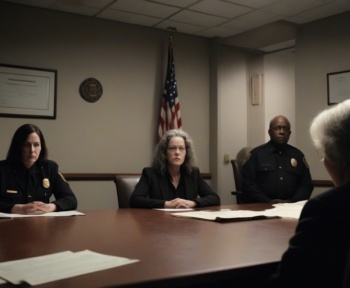Zach Bryan, a prominent figure in the country music scene, has become the center of a major controversy involving accusations of emotional abuse from his ex-girlfriend, Brianna LaPaglia, widely known as Brianna Chickenfry. During an episode of her podcast “BFFs,” LaPaglia unpacked details of her previous relationship with Bryan, claiming it was characterized by jealousy, manipulation, and emotional turmoil.
LaPaglia particularly highlighted incidents involving Bryan’s purported jealousy when she interacted with Morgan Wallen, another artist within the country music circuit. This jealousy, according to her, escalated into patterns of behavior that left her feeling intimidated and emotionally battered—a claim that adds to the complex narrative of their relationship.
Adding layers to the controversy, LaPaglia alleged that Bryan attempted to enforce silence post-breakup through a staggering $12 million non-disclosure agreement (NDA). This move, seen by many as an attempt to stifle potential backlash and protect Bryan’s reputation, has drawn significant scrutiny and speculation concerning the authenticity and motives behind such a hefty sum.
As these revelations entered the public domain, they sparked a significant debate among fans, industry observers, and the general public, diving deep into the dynamics of emotional abuse. Emotional abuse, characterized by a pattern of behavior aimed at controlling or belittling one’s partner under the guise of love or care, often leaves profound psychological scars.
With the public split in their perception, some of Brianna’s followers have rallied in support of her courage to come forward. However, skeptics question the veracity of her claims, considering the flamboyant nature of her public persona which could potentially color the truth.
The broader implications of such allegations spotlight the intricate layers of emotional abuse within relationships, especially among celebrities whose private lives continually withstand public scrutiny. This has prompted discussions that go beyond individual accusations to address systemic issues within relationship dynamics in the public eye.
Experts like Dr. Susan Albers, specializing in relationship dynamics in the context of mental health, suggest that celebrity status often magnifies personal struggles, converting private matters into public spectacle. This not only affects the individuals involved but also sets a precedence that can either contribute to public awareness or exploit personal tragedies.
From an industry perspective, professionals note that personal experiences deeply influence artists’ work; Bryan, celebrated for his emotionally charged lyrics, might be facing a challenging phase where his personal dealings bleed into his professional life.
Amidst these heated discussions, it’s unlikely that Zach Bryan and Brianna LaPaglia will reconcile. LaPaglia’s bold move to speak out could very well be her way of turning a painful personal experience into a broader advocacy against emotional abuse, empowering others who might be in similar situations to seek help and speak out.
The case also prompts a reevaluation of the use of NDAs in sensitive personal matters, particularly those involving allegations of abuse. Ethical considerations about the implications of such agreements are now front and center, with commentators and the public alike questioning whether these legal tools are used more for suppression of truth rather than protection of privacy.
As this drama unfolds, the societal reflection it has sparked is palpable. There is a growing push not just for accountability in cases of celebrity misconduct but also for a more profound, nuanced conversation about relationship health, emotional abuse, and the mechanisms available for victims to seek justice.
The unfolding narrative between Zach Bryan and Brianna LaPaglia serves as a stark reminder of the complexities surrounding modern relationships, especially those lived out under the glaring spotlight of public attention. While the complete truth may remain shrouded, the consequential dialogue now taking place is crucial for societal progress in addressing the shadows of emotional abuse in intimate relationships. Further developments are awaited as observers and fans keep a keen eye on how both individuals navigate this turbulent period, possibly setting precedents for how such issues are handled in the public eye in the future.




